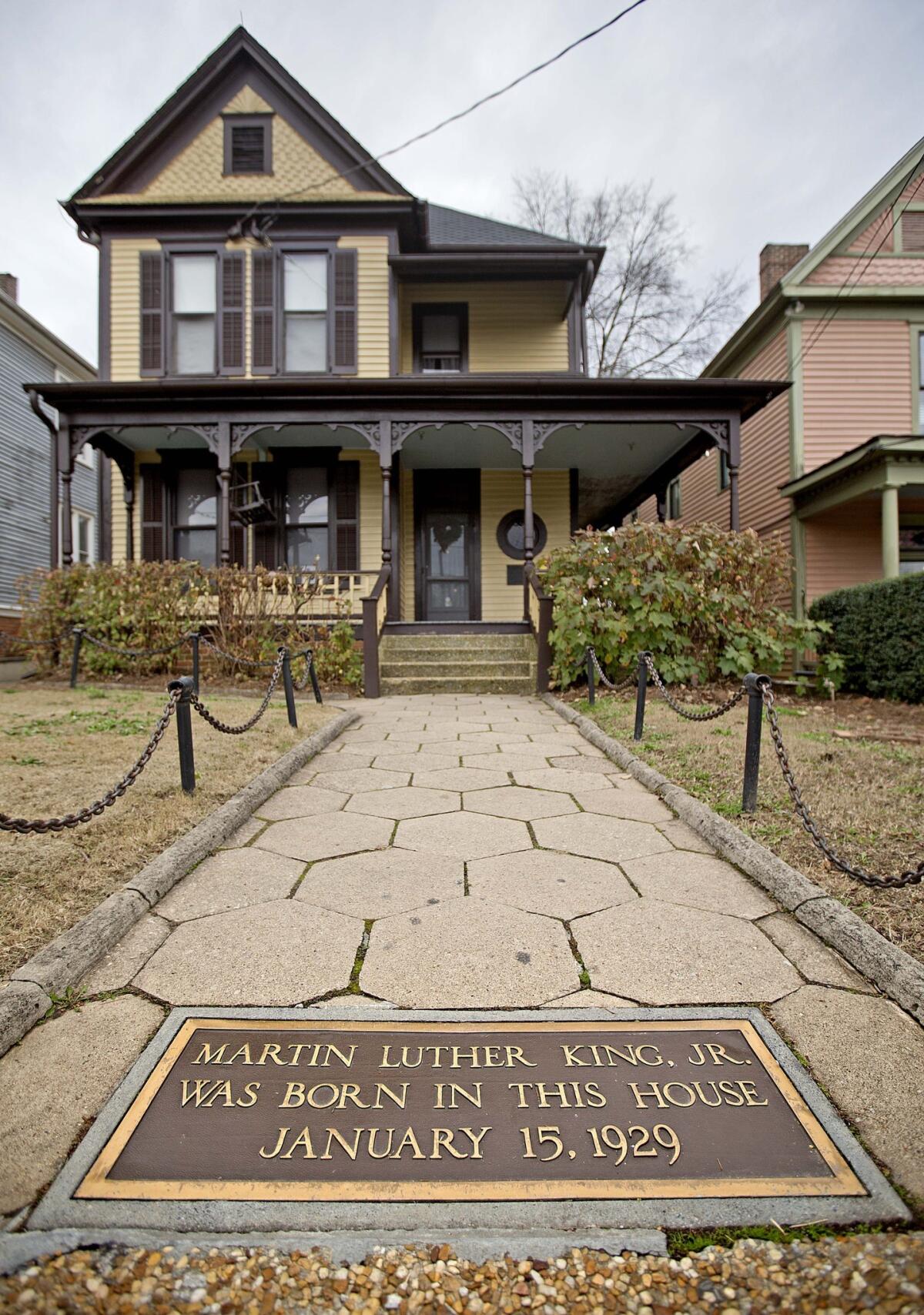The South: Four places to discover Martin Luther King Jr.’s life

Martin Luther King Jr. Day is a good time to reflect on the events that led to the Civil Rights Act, which President Lyndon B. Johnson signed 50 years ago in July. The stories that played out for King and his followers on the streets of Southern cities such as Birmingham, Ala., and Atlanta remind us of the enormous sacrifice that fueled the movement. Here are four places to learn about King and the historic events that transpired in the 1960s.
Martin Luther King Jr. National Historic Site in Atlanta: There are several components to this national site. You can visit the home at 501 Auburn Ave. where King was born in 1939, the Ebenezer Baptist Church at Auburn and Jackson streets where he and his father preached, and the burial site at the Martin Luther King Jr. Center for Nonviolent Social Change. An exhibition primarily for kids called the “Children of Courage” can be seen at the visitor center at this site.
National Civil Rights Museum in Memphis, Tenn.: Here visitors can stand in Room 306 of the Lorraine Motel where King stayed before being gunned down by James Earl Ray on April 4, 1968, on a second-floor motel balcony. The motel-turned-museum opened in 1991 and provides a timeline of the civil rights movement and the life of King.
Birmingham Civil Rights Heritage Trail in Birmingham, Ala: The downtown self-guided tour was created in 2013 to mark a half-century of civil rights events in this pivotal civil rights city. In 1963, black residents began holding sit-ins at white food counters. The same year saw four young girls killed by a bomb at the 16th Street Baptist Church, one of the landmarks noted on the tour. Trail signs with information, maps and photos point the way.
Alabama Civil Rights Trail: A free smartphone app, created by the Alabama Tourism Department, offers itineraries to key civil rights sites across the state in Birmingham, Montgomery, Selma, Tuskegee and other cities. It also features a time line of events leading up to the Civil Rights Act of 1964.
Create your own civil rights itinerary by using the National Park Service’s We Shall Overcome website, which maps significant sites nationwide, and download through the end of February a free copy of the Civil Rights Tour chapter from an upcoming Lonely Planet guidebook.
Follow us on Twitter @latimestravel, like us on Facebook @Los Angeles Times Travel.
More to Read
Sign up for The Wild
We’ll help you find the best places to hike, bike and run, as well as the perfect silent spots for meditation and yoga.
You may occasionally receive promotional content from the Los Angeles Times.







